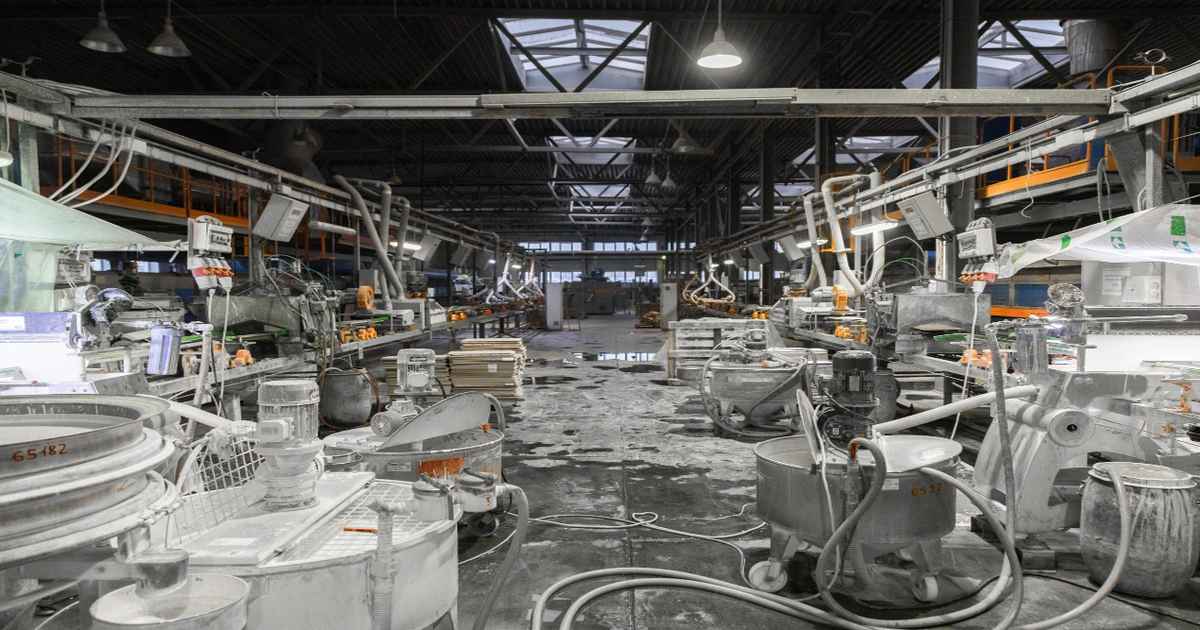What is ERP for Cement Industry?
Cement is the most essential building material, used in the construction of everything. The production and distribution of cement is a complex process which involves numerous variables to manage and optimize.
An ERP software for cement industry is the software which manages and integrates the various functions of a cement plant from raw material procurement to product delivery. ERP transforms the way cement companies operate by streamlining the process, reducing costs, managing quality control and improving efficiency.
Further in this blog, well explore about ERP and how it benefits the cement industry.
Overview of the Cement Industry in India
In the world scenario, India is the 2nd largest producer of cement. It is a vital part of the economy, providing employment to more than a million people directly and indirectly. Also, some of the recent major government initiatives such as development of smart cities are expected to provide a major boost to the sector.
However, the increasing opportunities in construction industry is also leading to increasing competition for the present companies with many of the world’s leading cement manufacturers now entering India. To succeed in this competitive market, companies require a strong operations management and efficiency improvement. The ability to integrate all the business functions in a single platform which is error free allows for greater optimization at each part of the cement supply chain.
Major Challenges Faced by the Cement Industry
Continuous improvements in plant efficiency, strict government regulations & environmental protection measures require greater transparency of data and information throughout the entire production chain. Since cement manufacturing process and cement milling are highly energy-intensive industry, the rising input energy costs are forcing cement manufacturers to adopt more and more cost-saving measures.
Below mentioned are the challenges faced by cement companies:
1. CO2 Emissions:
The cement production industry is closely related to CO2 emissions and hence it is one of the challenges to achieving a carbon-neutral model. The model would revolve around the usage of hydrogen, biomass fuels, and electrification. In line with this, manufacturing companies have also been looking for sustainable alternatives for inland transport.
2. Automation of Cement Production:
The cement manufacturing companies have raised a demand for increase in automation with digital solutions. Also, the increase in digitalized operations is a challenge that involves big data analysis, sensors usage, virtual facilities, dealing with equipment, and much more.
3. Real-time Data and Interconnectivity:
Having better connectivity between members of the chain is quintessential. It is mandatory that the suppliers, services, and inputs used in the cement manufacturing process are required to have a real-time connection so that they can quickly respond to the requests.
Cement manufacturing industry is a capital-intensive sector which needs detailed production planning for the optimal use of all fixed assets. For succeeding in this market and having complete control on operations, there is a need for reliable, efficiency improvement and integrated business intelligence system both at plant level and stores related.
Which ERP Software is Used in the Cement Industry?
Sage X3 is the most widely used software in the Indian cement industry. It gives management complete visibility over the entire operations and aids it in strategic decision-making.
Here’s why key players in the cement industry use Sage X3:
- Streamline the procurement of raw materials and ensure continuity in the production
- Manage cash flow efficiently with AP automation and AR automation
- Gain advanced budgeting & forecasting capabilities and stricter financial control
- Predict demand for products, optimize delivery schedules, and reduce inventory chaos
- Reduce supply chain bottlenecks and capture new market opportunities
Benefits of Using ERP Software for Cement Industry
1. Comprehensive Financial Control:
Business management software with AR Automation makes it easy to manage finance books with profitability measures, inter-division sales, and purchase on a real-time platform.
Accounts payable software makes easy to manage and analyze overhead cost, process cost, material cost along with detailed product costing. ERP software can be automated for bill passing for freight processes, purchase, and job works.
2. Advanced Supply Chain Management:
With supply chain management software module management can track inward and outward movement at Security Gate, Weighbridge, Quality lab and store/ yard locations.
It provides detailed traceability from receipt of raw material to finished goods with precise division wise inventory. It also facilitates plane movements related to stores, inward, outward, sales returns, purchase returns, scrap movement, waste movement, inter-yard transfers, and much more.
3. Efficient Production Control and Planning:
ERP solution lets you have more sophisticated and accurate MIS on plant or production casting performance levels. In the case of production planning, you can make a monthly production schedule, change process parameters such as pressure, temperature, etc. along with material requirement planning and item BOM.
Through business intelligence software you can make shift-wise production along with godown control lot and batches while making the overall production process simple and easy.
4. Dispatch and Sales:
The ERP software for cement manufacturing has inquiries and quotations with three level-order cycles including Sales Contract, Sales Order and Delivery Orders.
Lead management system looks after all the leads, conversions, sales orders and dispatching orders. Generates e-invoicing instantly while attaching the delivery orders and weighing slips in a precise way.
5. Cost-Effectiveness:
The ERP system also offers the most flexible and effective pricing methods including quantity discounts, sales contracts, credit control, and cash discounts as well. It helps develop healthy customer relationship management and helps to enhance the overall growth of the business.
Also Read:- Best Cloud-Based Product Lifecycle Management Software
Unlock Your Potential & Gain New Opportunities with Sage X3
Sage X3 is the must-have solution that takes care of everything from tracking energy consumption, production planning, demand analysis, and quality control, to financial management. It frees up your employees for more productive operations and empowers decision-makers with strategic insights for informed decision-making.
If you are looking to cut costs, improve productivity, and achieve sustainable growth, look no further and deploy Sage X3. Align your current operations with changing market dynamics, and build a reputation for quality & reliability.






